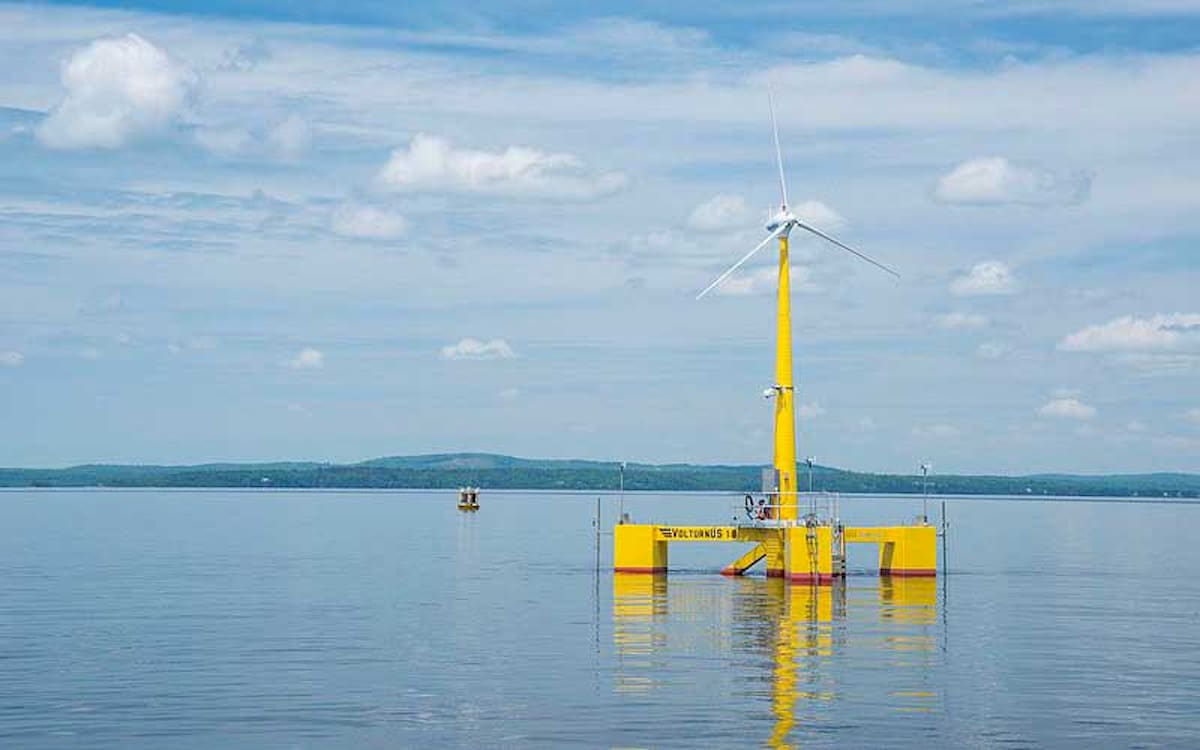Maine’s Offshore Wind Boost Could Meet Half Its Energy Needs by 2040

 Why you can trust us
Why you can trust us
Founded in 2005 as an Ohio-based environmental newspaper, EcoWatch is a digital platform dedicated to publishing quality, science-based content on environmental issues, causes, and solutions.
Offshore wind energy is getting a major boost in Maine, which has just approved adding 3,000 megawatts of energy provided by offshore wind turbines by 2040. The 3,000 megawatts would be enough to meet about half of Maine’s electricity demand.
Maine Governor Janet Mills signed the law, LD 1895, on Thursday, noting the legislation would contribute to port development with inclusions to still protect lobster fishing areas.
“Offshore wind, done responsibly, offers Maine the opportunity to secure abundant clean energy, stable energy prices, good-paying jobs, and a healthier environment for future generations,” Mills said in a statement.
In previous discussions to expand offshore wind in the state, the lobster industry raised concerns and protested offshore wind development.
“We don’t know how much the electromagnetic field around the cables going to shore is going to affect things on bottom,” lobster fisher Clayton Philbrook told WABI5, a local news station based in Bangor. “Will lobsters go near it? Will they crawl over them? Will it repel them? All of this is information that, as far as I know, there’s been no research done on it.”
In response, the bill notes protections for Lobster Management Area 1, and the law gives preference to offshore wind energy projects designed for areas outside of these lobstering grounds.
The new legislation allows the Governor’s Energy Office to add up to 3,000 megawatts of electricity from offshore wind turbines by 2040 in order to help the state meet its goal of 100% clean energy by 2050. As of 2021, Maine ranks fifth in the U.S. for the portion of wind-powered electricity generation (23%) compared to total electricity generation, according to the U.S. Energy Information Administration.
The wind turbines for the Gulf of Maine will need to utilize floating platforms, rather than anchoring the turbines to the ocean floor, as The Associated Press reported, because the waters are too deep.
The Maine Department of Transportation will likely choose its preferred location for an offshore wind energy port by 2024, according to the statement on the governor’s office website.
“To combat climate change and invest in Maine’s energy independence, our state has set ambitious goals for renewable energy. It’s clear that this effort will involve offshore wind energy projects,” said Senator Mark Lawrence, who sponsored the amended bill. “We need to have guardrails in place to make sure this is done right and truly benefits Mainers. This bill will mean jobs, lower and more stable energy prices while combating climate change at the same time.”
Subscribe to get exclusive updates in our daily newsletter!
By signing up, you agree to the Terms of Use and Privacy Policy & to receive electronic communications from EcoWatch Media Group, which may include marketing promotions, advertisements and sponsored content.

 233k
233k  41k
41k  Subscribe
Subscribe 



